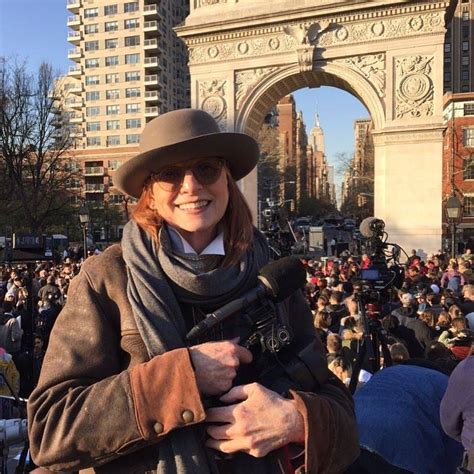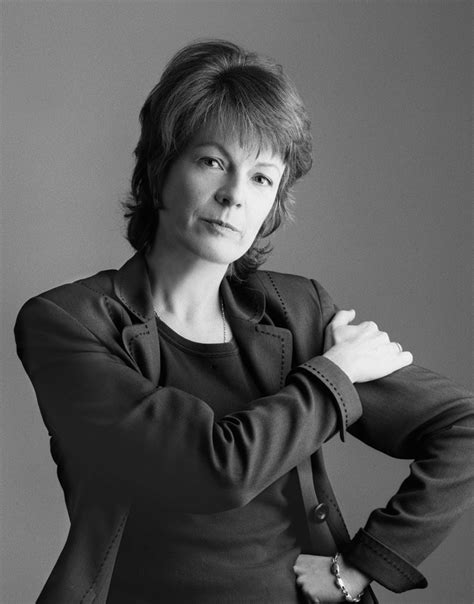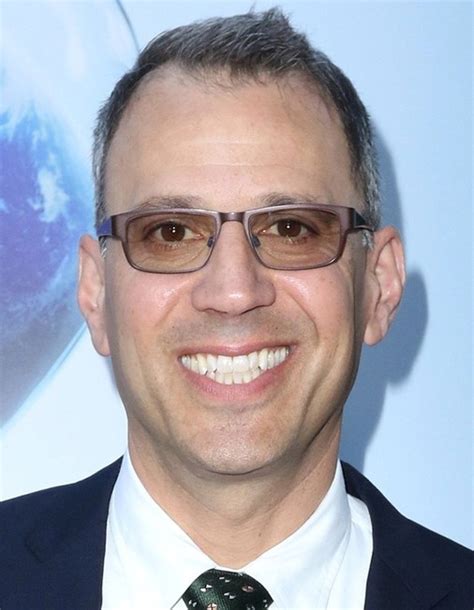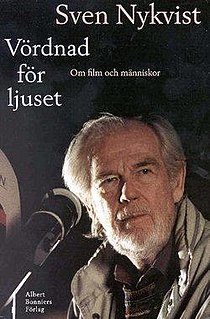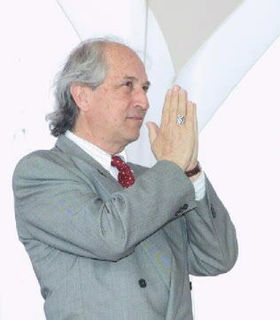Top 179 Quotes & Sayings by Famous Cinematographers - Page 3
Explore popular quotes by famous cinematographers.
As we've seen the rise of cultural, environmental and educational tourism in adventure travel, we've also seen the rise of female participation. Part of that is due to changes in women's attitudes about their own abilities. As more women participate in such things as fly-fishing, whitewater kayaking and bicycling, we're also seeing concurrent growth in those areas in adventure travel.
I have a 22-year-old son, and when my son was born I made a decision to raise him. My husband and I took turns working, and it's easier to raise a kid in the documentary world, where you go away for two weeks or three weeks rather than the months that you spend on a feature. That was and still is much more open to women DPs than the world of fiction.
As important as it is to learn the techniques of cinematography, you also have to learn how to deal with the movie set, with show business. I came up with a cinematographer who is very talented, but she was never quite able to handle everything else you have to do - dealing with the producer and the crew and the time frame that you have to follow.
It's all about special effects and explosions now. It leaves me just cold when I walk out of the theater. There's no heart; there's no soul. Movies used to be about people. It's as though we don't tell stories any more. The studios have to make money, and if you want to make $20 million, you have to spend $200 million.
If you need to strap a camera to you or get in a small space, then it makes sense to use digital.I do think it is possible to use a digital camera artistically, but it can only be good if you are using film technique. Film has grain, and digital has pixels, and there is not that much of a difference, but digital does not replace the need to create a scene and light it properly and spend time considering the shot.
I think all cinematographers, at least most of them, would love to do everything on location because you cannot cheat on location. It's there, it's part of the story usually. You have to deal with the elements. You have the sunshine, you have rain, you have fog - it really makes you work harder to try to match things during the day to make it look like it was shot within five minutes, movie time.
There is a difference between creating something and just capturing something. And when we were using film, it was not that fast, and it was expensive, so there was incentive to make sure the shot was exactly right before we rolled. With digital, it's fast and its cheap, and it's easy to bypass the rest.
What interested me in film was the image-making aspect of it. So, I went to school in cinematography. I was really convinced that image was what I wanted to do, and I think it came from the fact that I lived in a small town my whole life, but my mother was very interested in painting, so she would bring us to Paris for two weeks. So, we're going to the Louvre and to the museums and to see shows. In the evening we were seeing theater. Painting is basically what led me. I think the image was key.
Leica are known for their still camera lenses and in the last year and a half have come out with a series of film lenses and they are brilliant. The best thing about them, apart from their quality, which is uniform, is that each one is the same size, pretty much the same weight... So in terms of fitting into the rig, everything is almost purpose built for that and the quality is beautiful, really beautiful.
When the cinematography school told me I would have no chance to get a job, I said, "It's irrelevant." My mom was a feminist in the '20s. She taught me to be on my own, to be independent, to do what I wanted to do. I did not believe it would be difficult. It was difficult. In '66, I almost starved for a year and a half, and the only way I did not starve was because I could not find a job in camera, but I found a job in editing.
We exchanged a couple of ideas and stuff like that, but that's about it. I just think ... consulting on 'Tintin' was very interesting because you try to ... not educate, but inform the animators [about] what the lighting looks like, but [in the end] they do it themselves. I don't actually go and sit there with them. [We] just had a couple of conversations.
When you live in Israel, there are restrictions which come from budget definitely. I came to the point where I had shot many fiction, many feature films, but at one point it began to bore me. It was boring because when you're Gordon Willis or when you are a legend of American cinematography, you know that you are gradually building yourself and you can go into bigger budgets and experiment more. In Israel, the budgets are very, very limited.

